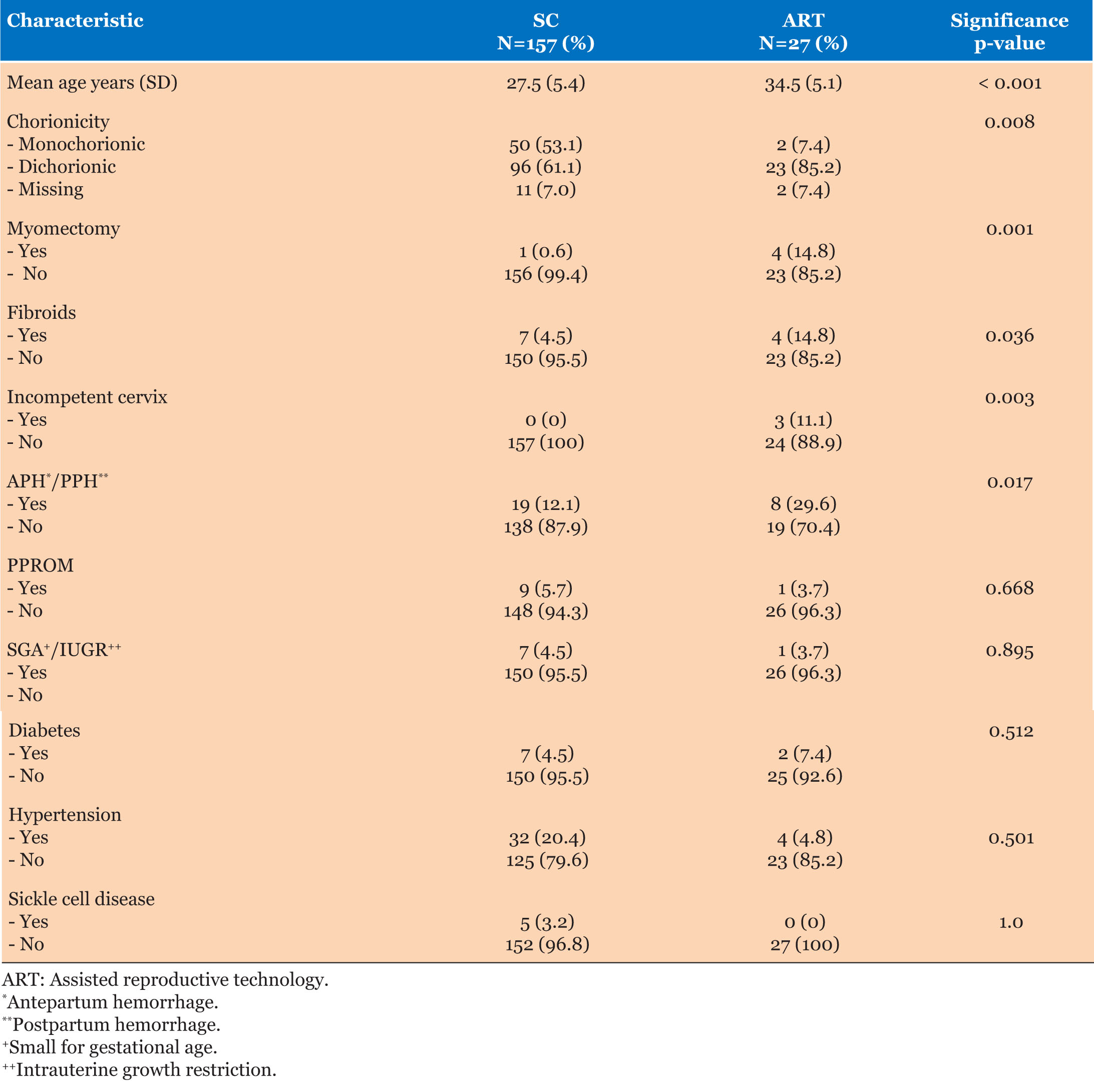 |
Research Article
Factors associated with preconception care practices among women visiting Mother and Child Health Clinic in Nakuru County Referral and Teaching Hospital, Kenya: A mixed-methods study
1 Department of Community Health, School of Public Health, Amref International University (AMIU), Nairobi, Kenya
2 Lecturer, Department of Community Health, School of Public Health, Amref International University (AMIU), Nairobi, Kenya
3 Lecturer and Consultant Nutritionist, Department of Health Sciences, School of Agriculture, Environment and Health Sciences, Machakos University, Machakos, Kenya
Address correspondence to:
Lucky Oseghale Oloboh
Department of Community Health, School of Public Health, Amref International University (AMIU), Nairobi,
Kenya
Message to Corresponding Author
Article ID: 100014M01LO2025
Access full text article on other devices

Access PDF of article on other devices

How to cite this article
Oloboh LO, Kuria-Ndiritu S, Muia-Matuku EN. Factors associated with preconception care practices among women visiting Mother and Child Health Clinic in Nakuru County Referral and Teaching Hospital, Kenya: A mixed-methods study. Edorium J Matern Child Health 2025;8(1):1–11.ABSTRACT
Aims: Despite the recognized importance of preconception care (PCC) to enhance maternal and fetal health, there is limited understanding of the factors affecting its uptake, especially in diverse socio-economic and cultural contexts. This study aimed to evaluate the level of PCC practices, explore socio-demographic factors influencing PCC utilization, examine the relationship between PCC knowledge and practices, and identify factors affecting PCC adherence among women attending the Mother and Child Health Clinic at Nakuru County Referral and Teaching Hospital, Kenya.
Methods: A descriptive cross-sectional study utilizing a mixed-methods approach was conducted. Quantitative data were collected from 436 women aged 18–49 via simple random sampling using structured and semi-structured questionnaires. Data were analyzed using SPSS version 26.0, with univariate and bivariate analyses to identify significant associations (p<0.05). Qualitative 2025 data were gathered through focus group discussions and analyzed thematically to contextualize findings.
Results: Among respondents, PCC practice levels were high: 87% reported folic acid use, 68% took iron supplements, 63% received nutritional counseling, and 61% obtained preconception vaccinations [e.g., Rubella, Hepatitis B, Influenza, and human papillomavirus (HPV)]. Knowledge of PCC was moderate at 69%. Significant associations were found between PCC practices and socio-demographic factors, including age, education, occupation, and monthly income (p<0.001). Preconception care knowledge also significantly impacted practices. Additional factors influencing PCC adherence included cultural beliefs, previous obstetric complications, and partner support.
Conclusion: Preconception care practices are influenced by socio-demographic and socio-economic factors, alongside cultural beliefs and support systems. Addressing these determinants through targeted interventions and continued stakeholder engagement is critical for improving PCC uptake and ensuring better maternal and fetal outcomes in Nakuru County.
Keywords: Kenya, Nakuru, Preconception care practices, Women of reproductive age
SUPPORTING INFORMATION
Author Contributions
Lucky Oseghale Oloboh - Substantial contributions to conception and design, Interpretation of data, Drafting the article, Revising it critically for important intellectual content, Final approval of the version to be published
Shiphrah Kuria-Ndiritu - Revising it critically for important intellectual content, Final approval of the version to be published
Esther Nduku Muia-Matuku - Revising it critically for important intellectual content, Final approval of the version to be published
Guaranter of SubmissionThe corresponding author is the guarantor of submission.
Source of SupportNone
Consent StatementWritten informed consent was obtained from the patient for publication of this article.
Data AvailabilityAll relevant data are within the paper and its Supporting Information files.
Conflict of InterestAuthors declare no conflict of interest.
Copyright© 2025 Lucky Oseghale Oloboh et al. This article is distributed under the terms of Creative Commons Attribution License which permits unrestricted use, distribution and reproduction in any medium provided the original author(s) and original publisher are properly credited. Please see the copyright policy on the journal website for more information.





